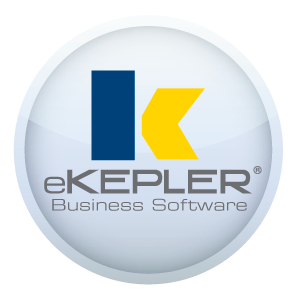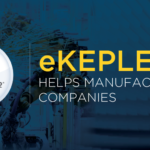
Acquiring an ERP system is one of the biggest investments a business can make, yet many small and young businesses claim they are ‘too small’ for ERP. This stems from the mindset that the number of users drives the need for an ERP solution. Small business have to be faster and sharper than the competition, and an ERP allows small businesses to appear, act and operate like an big enterprise business.
What Benefits Do Small Businesses Get From ERP?
- Transparency: Instead of each department having its own information system, all relevant data can be shared and accessed by all the departments.
- Decision-making: Real-time data provided by the system can be beneficial for marketing, management, accounting, and enables the organization to make vital decisions on time and reduce waste.
- Productivity: With increased clarity by streamlined business processes, staff can shift their focus on managing increased volumes of business.
What Are Signs That Your Business Needs an ERP?
As the business expands and transactions increase, it may become more time-consuming and difficult to process a larger volume of data. Business processes become much more tedious, such as; inputting sales and purchase orders from various clients, updating inventory, manual stock checks, processing invoices, billing and keeping track of client interactions.
ERP can automate these manual processes, therefore allowing the company’s staff to develop sales and business instead of administrative tasks.
It may be time for ERP implementation:
- When the amount of inventory in the warehouse becomes difficult to determine;
- When the sales forecast is based mostly on guesswork;
- When the company is struggling to keep up with an upsurge of orders or relies heavily on excel spreadsheets;
- When getting solid facts becomes problematic, it may be time for ERP implementation.
What Is the Right Choice of ERP?
Before choosing an ERP solution please take into consideration the following tips.
- Ease of Use: Consider the learning curve involved. Is it user-friendly?
- Customization: Does the software accommodate changing business models?
- Cloud or On-premise Platform. Determine which option best suits your business objectives.
- Frequency of Upgrading: Be aware of the support guarantee regarding mandatory upgrades.
- Security Measures: Ensure that the security of your data is as much of a priority to the vendor as it to you.
- Support Service: Take into account how much support is offered by the vendor and find out if there are any additional fees involved for troubleshooting your system.
- Total Cost of Ownership: The goal here is to maximize your ROI. The costs involved in purchasing software can be confusing. Once you understand what you are after and what your business processes are, you can ask more targeted questions about the ERP software you want.
Original Article: www.business.com

